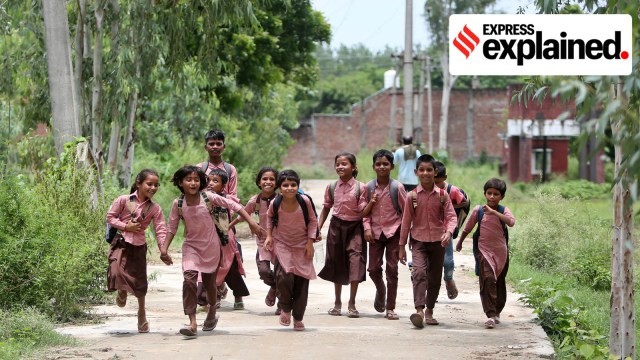Revisiting RTE Exemption for Minority Schools

- 07 Sep 2025
In News:
The Supreme Court has recently reopened the debate on whether minority institutions should be exempt from the Right to Education (RTE) Act, questioning the validity of the 2014 Pramati Educational and Cultural Trust judgment, which granted blanket immunity to minority schools—both aided and unaided—from RTE provisions. This issue lies at the intersection of Article 21A (Right to Education) and Article 30(1) (minority rights to establish and administer institutions), raising questions of inclusivity, equality, and constitutional morality.
The RTE Act and Its Objectives
Enacted in 2009, the RTE Act operationalises Article 21A, guaranteeing free and compulsory education for children aged 6–14 years. Its key mandates include:
- Government schools: Free education for all.
- Aided schools: Free seats proportional to state funding.
- Private unaided schools: Reservation of 25% seats at entry level for disadvantaged children (Section 12(1)(c)), with state reimbursement.
The Act also prescribes standards on infrastructure, pupil-teacher ratios, teacher eligibility, and prohibits corporal punishment and capitation fees. Rooted in child-centric philosophy, RTE aims to build inclusive classrooms as spaces of democracy, equality, and social justice.
The 2014 Pramati Judgment
A five-judge Constitution Bench ruled that applying RTE to minority institutions violated Article 30(1). It held that enforcing quotas and norms could alter their composition, thereby infringing minority rights. Consequently, both aided and unaided minority schools were exempted from RTE obligations.
Fallout
- Many private schools sought minority status to escape compliance.
- Exemption diluted inclusivity, particularly the 25% quota, undermining the spirit of Article 21A.
- Loopholes allowed elite minority institutions to function without admitting disadvantaged children—even from their own communities.
The 2025 Reconsideration
In September 2025, while hearing a case on the applicability of the Teacher Eligibility Test (TET) to minority schools, a two-judge bench led by Justice Dipankar Datta observed that Pramati had gone too far. The Court argued that:
- Articles 21A and 30 must co-exist. Institutional autonomy cannot override children’s rights.
- Standards like qualified teachers and infrastructure do not erode minority character.
- Blanket exemption weakens inclusivity and creates a “regulatory loophole.”
- Compliance with the 25% quota could be interpreted flexibly, e.g., by prioritising disadvantaged children from the same minority group.
Since only a larger bench can overturn Pramati, the matter has been referred to the Chief Justice of India for constitution of a bigger bench.
Challenges Ahead
- Legal Precedent: Overturning a Constitution Bench ruling requires judicial restraint and careful balancing.
- Autonomy vs Inclusivity: Reconciling group rights with universal child rights is constitutionally complex.
- Weak Enforcement: Even where RTE applies, compliance remains patchy.
- Social Resistance: Elite institutions and parents often resist socio-economic mixing in classrooms.
Implications
- For Education: Denial of access to elite minority schools undermines equity and India’s democratic ethos.
- For the Constitution: Current exemption skews the balance, privileging institutional rights over individual rights.
- For Society: Misuse of minority status widens educational inequality, weakening India’s human capital base.
Way Forward
- Judicial Harmonisation: Larger benches must strike a balance, clarifying that autonomy does not equal immunity.
- Policy Realignment: At minimum, teacher qualifications and infrastructure norms should apply to all schools.
- Strengthening Public Schools: Improving government schools can reduce over-reliance on private/minority institutions.
- Social Awareness: Campaigns to highlight inclusive classrooms as spaces of democratic socialisation are vital.
Conclusion
The exemption of minority schools from RTE is not merely a legal question but a test of constitutional morality. Upholding the child’s right to inclusive education must prevail over institutional privileges. The forthcoming larger bench decision offers an opportunity to harmoniseArticles 21A and 30, reaffirming that education is not a privilege of groups but a universal right essential to democracy and nation-building.
